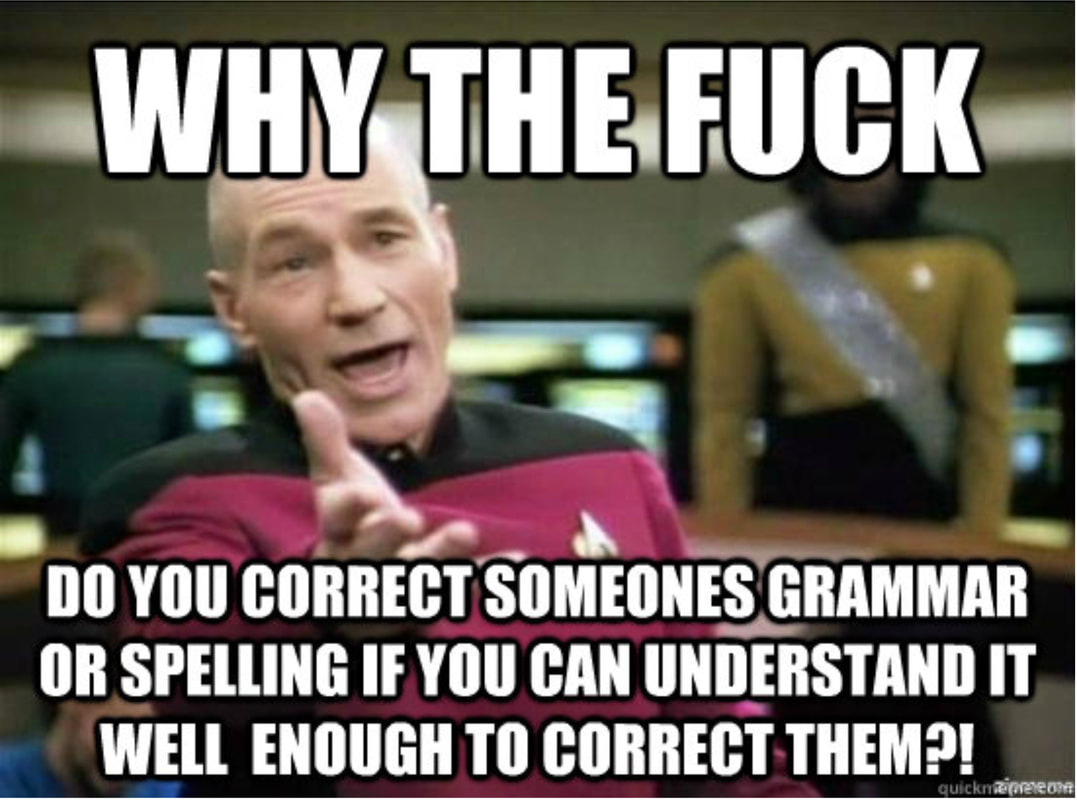
I do believe, however, that many people—particularly businesspeople—want to write clearly and correctly, and I'm happy to help them achieve that goal.
So a while back, when a customer service rep typed "your welcome" to me, I shared the above screenshot on LinkedIn. I pointed out that it's an extremely common error and explained that when you say "you're welcome," you're creating a contraction of "you are welcome." I thought it might help some people better understand and remember the correct spelling.
(I did not write, or even imply, "Look how stupid this person is." I simply explained the correct spelling.)
I was surprised when I got this response from a "senior business development manager":

I had to think about that just a bit.
While I was thinking, I did a bit of "research" (read: Googling) about this conviction that so long as we can understand each other, we shouldn't be fussing about apostrophes and spelling.
And I discovered that this senior business development manager's opinion was not unique. I found a meme that echoed his sentiment with just a touch more vulgarity:
First—in my defense, I never correct people directly unless I know they want me to, and then I only do so privately.
But as for the "correctness" thing, I'll explain "why the fuck" it matters.
It matters because we live in a society. With conventions and expectations. And—occasionally—manners. We abide by certain rules to get along harmoniously. To establish credibility. To gain trust and respect. This is why you don't typically show up for a job interview barefoot or pick your nose when you're meeting your new neighbors. It's why you stand in line and wear pants in Starbucks. It's why your doctor doesn't buff his fingernails while he's listing your treatment options.
Also, writing is about connecting and communicating with our readers. We owe them the kindness of making our message as clear as possible. It's like holding a door open for them. It's polite. We're helping them along. We're putting in a good effort to save them trouble. We're showing them respect.
I admit that writing is a series of judgment calls, and I might write more casually on Twitter than I would on behalf of a higher education client. But fundamentally, I always try to think about the people reading my writing, and I try to treat them well.
So that's "the issue," and that's my position, for anyone who's wondering.
You're welcome.

 RSS Feed
RSS Feed